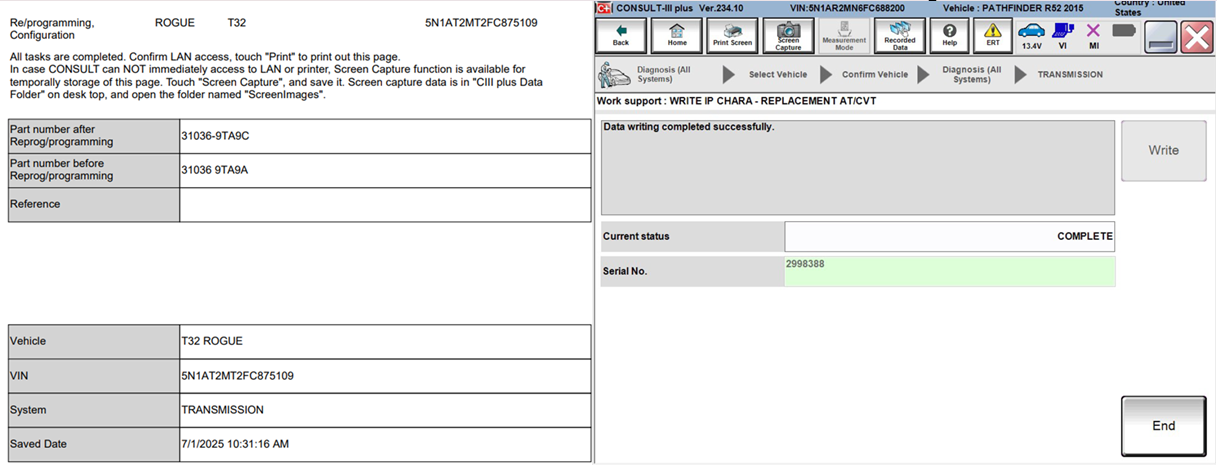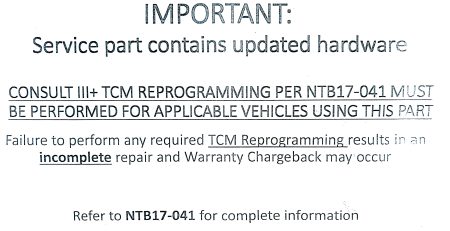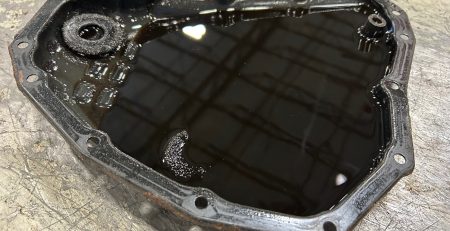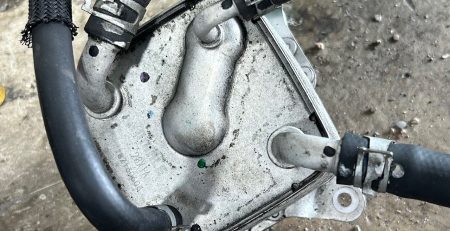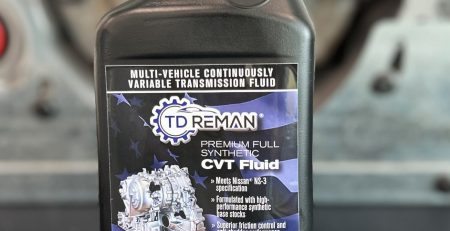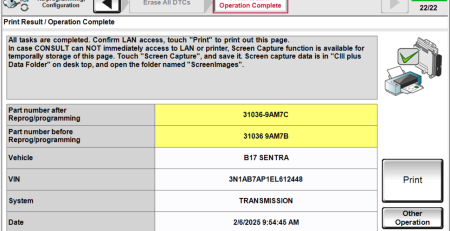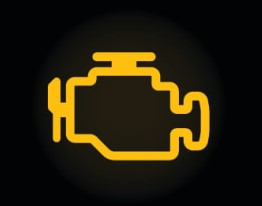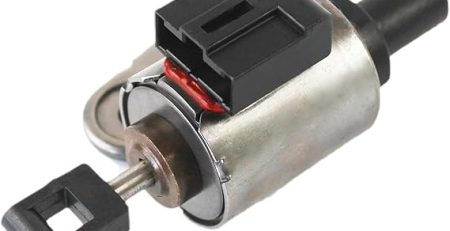Nissan Reprogramming vs. Recalibration…What is the difference?
Reprogramming vs. Recalibration: What You Need to Know When Replacing Your Nissan CVT
When it comes to replacing your Nissan CVT transmission, especially with a remanufactured one from TD REMAN or an OE Nissan Dealer unit, there’s more to the job than just bolting in a new unit. Two key terms you’ll hear often in the process are “Reprogramming” and “Recalibration.” These are not the same thing and confusing them can mean the difference between a smooth ride and a costly comeback.
What Is Reprogramming?
Reprogramming means updating the software in your car’s Transmission Control Module (TCM) to the latest official version provided by Nissan. This ensures your TCM has the correct logic and settings to properly manage the transmission’s performance.
- Required by Nissan and most warranty providers including TD REMAN.
- Corrects known software bugs or drivability issues and ensures the TCM is compatible with your replacement CVT.
- Requires downloading and flashing a new software file from Nissan’s tech website. (https://www.nissan-techinfo.com/ecm07.aspx).
What Is Recalibration?
Recalibration (also referred to as “Write IP Characteristics” or CVT Initialization) is a separate step where the TCM learns how your specific remanufactured CVT behaves. Every transmission—whether new or remanufactured—must undergo the adaptive solenoid strategy procedure to ensure proper operation.
- Critical for smooth shifting and long-term reliability.
- Requires a QR code or calibration CD included with the new transmission.
- Helps remove “Judder” codes, and avoids harsh engagement, erratic shifting, slipping or poor drivability.
Why It Matters
Modern CVTs are smart. They learn and adapt over time. If you skip reprogramming or recalibration (or both), your car may drive fine at first but develop serious issues like:
- Persistent check engine lights
- Rough shifting or poor acceleration
- Warranty denial from Nissan and TD REMAN
- Costly comebacks and customer complaints
EXPERT INSIGHT:
As Daryl Robinson, a seasoned Nissan shop foreman, puts it: “Adaptive relearn is required after programming, and failure to complete it will result in the CVT not operating properly.”
You have three options for Reprogramming/Recalibration:
- Do it yourself: if you have a CONSULT III+ or compatible scan tool
- Take it to a dealership: they have the tools and access to Nissan’s software
- Use our mobile TCM programming service: We’ll send a technician to your location (available for an extra cost)
Final Thoughts
Installing a remanufactured CVT is a big job, but skipping TCM programming steps is like skipping the final bolts on an engine. At TD REMAN, we want your replacement to work right the first time, every time. Need help? Give us a call and talk with one of our Nissan CVT experts.
Have questions about Nissan CVT programming?
– Call TD REMAN today and talk with a Nissan CVT expert or visit our website TDREMAN.com for more technical information.

